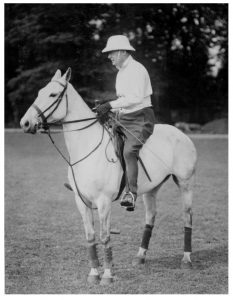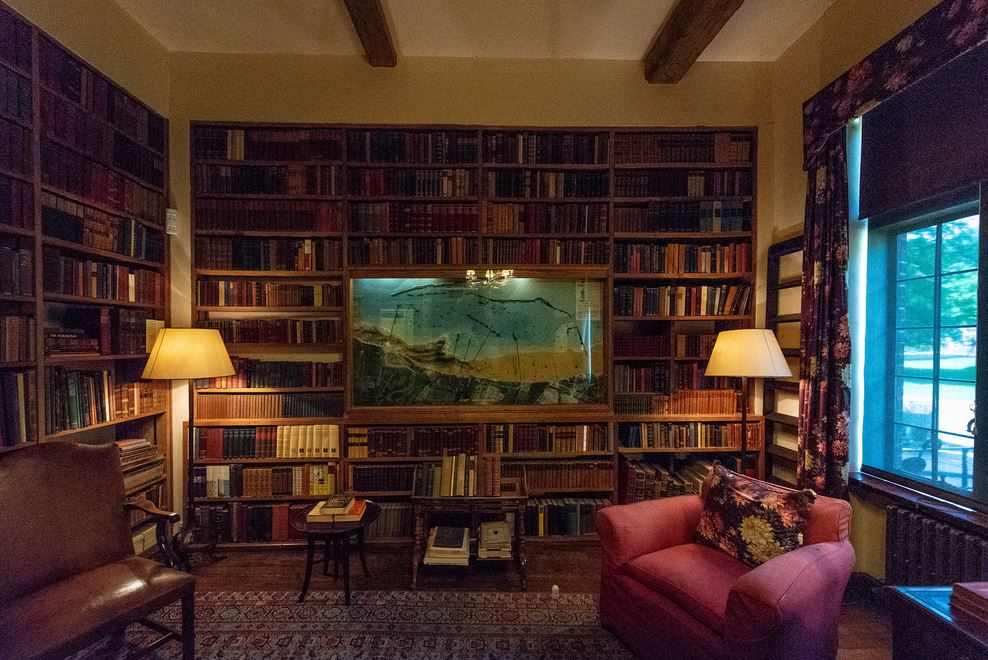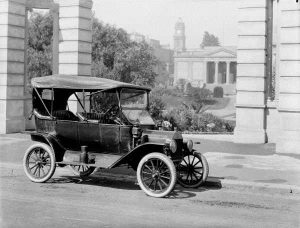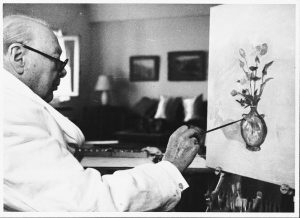
Man of Words
Churchill’s Broad Literary Interests

Churchill's Library at Chartwell
August 18, 2021
Churchill wasn’t only interested in writing history, biography and autobiography (with the odd dabbling in fiction and counterfactual fantasy). During his ‘wilderness years’, in the 1930s, Churchill took on the profitable (for him) role as screenwriter and adviser to the Hungarian-born film director Alexander Korda in Hollywood. He even acted as adviser and coach to a potential actor in what was a doomed early film adaptation of T. E. Lawrence’s Revolt in the Desert (Korda had bought the film rights to both this and Seven Pillars of Wisdom, later selling the film rights to Sam Spiegel and the director David Lean who went on to make the award-winning Lawrence of Arabia).
Throughout his life, Churchill always read the latest fiction and non-fiction – and not just history. He counted among his friends and acquaintances literary figures of the day such as Somerset Maugham, Gertrude Bell and T. E. Lawrence (‘Lawrence of Arabia’). He’d worked closely with the latter in a professional capacity, while Colonial Secretary in the 1920s – he was just the sort of adventurer that appealed to Churchill – but he also admired his writing. While Churchill shared an interest in the science fiction – although not necessarily the politics – of H. G. Wells, Aldous Huxley and Jules Verne, he didn’t tend to hold back on expressing his opinions of other writers of the day, particularly if their politics didn’t accord with his.
Subscribe
WANT MORE?
Get the Churchill Bulletin delivered to your inbox once a month.




